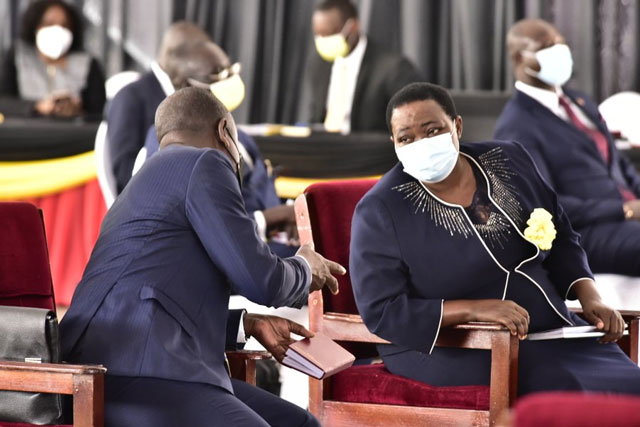
Mbale, Uganda | THE INDEPENDENT | A section of Members of Parliament from rural areas have called for equitable distribution of COVID-19 relief cash across the country.
The government has allocated 53 billion Shillings as relief support to vulnerable people in municipalities and cities which are hit hardest by the lockdown measures, laid out by President Yoweri Museveni to stop the spread of the COVID-19 Pandemic. At least 530,000 vulnerable Ugandans are expected to benefit with each getting 100,000 Shillings each.
But the group is against the criteria proposed by the National COVID-19 task force to concentrate on vulnerable persons within the Kampala Metropolitan area, 41 municipalities and 10 operation cities as the only areas to benefit from the multi-billion welfare plan. They have also questioned the criteria for identifying the said beneficiaries.
Recently, Prime Minister Robinnah Nabbanja said that they will for instance review a person’s transactional history and the amounts of money they have been receiving through their mobile money wallets to determine the level of vulnerability.
However, the legislators told journalists at Pope Paul Memorial Hotel in Lubaga, Friday, that the government instead needs to roll out the welfare plan that covers every Ugandan. Bukomansimbi South MP Geoffrey Kayemba says it is absurd that the government has ignored the villages, where communities are living in despair and need aid most.
Bbaale County MP Charles Tebandeke calls for a review of the entire process and that allocations initially made to the roads and security sector, among others, should be rechanneled to supporting COVID-19 relief.
Hellen Nakimuli, the Woman MP Kalangala District said that apart from the lockdown measures, the people of Kalangala do not have a water ambulance and can hardly move to the mainland for treatment, while fishermen have also been rendered redundant because of bad weather and need support.
Lugazi Municipality MP Stephen Seruburwa is concerned that councillors are preparing to use the National Resistance Movement (NRM) yellow books to determine beneficiaries, a development he describes as sad.
Geoffrey Lutaaya of Kakuuto County says that his people in Kakuuto County have been suffering from floods, and bad roads and the lockdown made the situation worse, adding that leaving them out will be detrimental to their livelihood.
The Cabinet is expected to sit on Monday to approve a plan to send vulnerable groups of people cash via mobile money as drafted by the National Task Force on COVID-19
****
URN
 The Independent Uganda: You get the Truth we Pay the Price
The Independent Uganda: You get the Truth we Pay the Price



